Coffee pods have become increasingly popular in recent years, providing a convenient and easy way to enjoy a fresh cup of coffee at home or in the office. However, one common question is, "How long do coffee pods last?"
Understanding the shelf life of coffee pods is essential for ensuring you get the best possible cup of coffee every time.
In this article, we will explore the factors that affect the freshness of coffee pods, how to store them properly, and provide some general guidelines for their consumption.
Coffee pods, or coffee capsules, are small, single-serving containers that brew a single cup of coffee. They are typically made of plastic or aluminum and are filled with ground coffee.
Coffee pods are designed to be used with specific coffee machines, such as pod or capsule machines, which brew the coffee by passing hot water through the pod.
Factors Affecting Coffee Pod Freshness
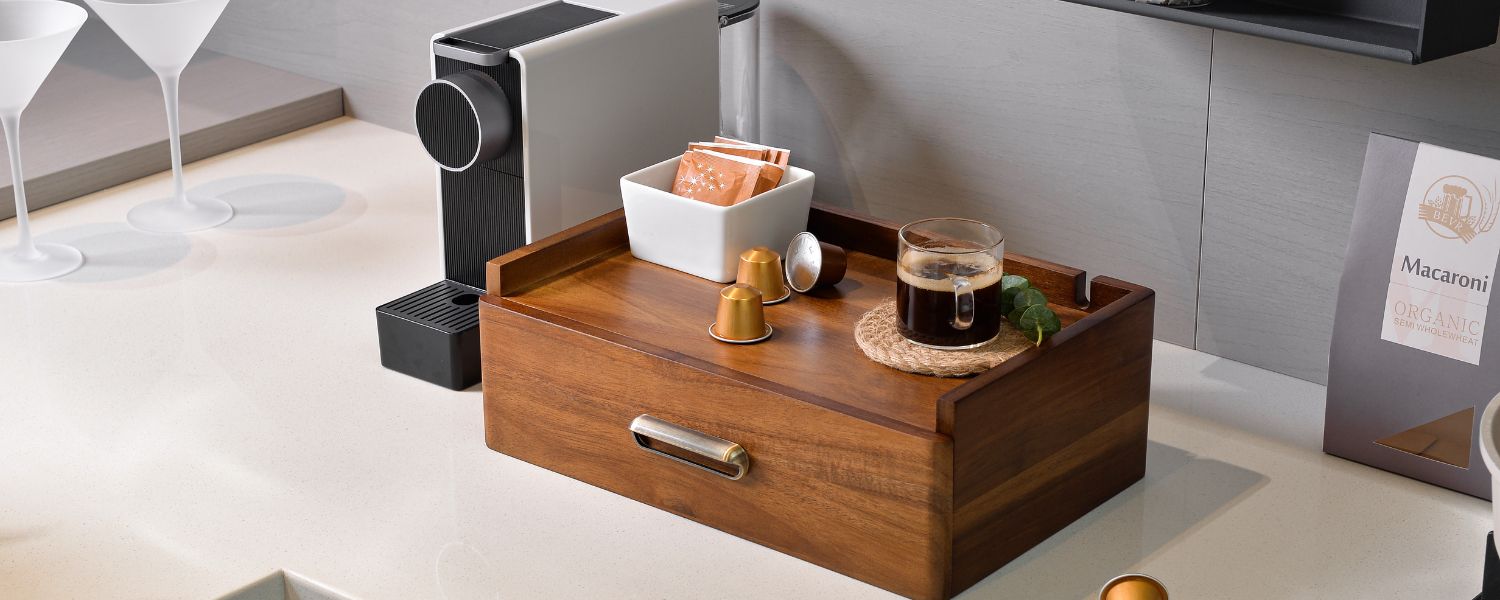
Several factors can affect the freshness of coffee pods, including packaging, storage conditions, the type of coffee used, and the shelf life of the pods.
1. Packaging
The packaging of coffee pods is critical for preserving freshness because it serves as the first line of defence against external factors that can degrade the coffee. Airtight packaging helps seal the flavour and aroma of the coffee grounds, preventing exposure to air, light, and moisture, which can all contribute to the deterioration of the coffee.
High-quality packaging materials, such as aluminum or specialty plastics, provide an effective barrier against these elements, ensuring the coffee remains fresh until it is brewed.
2. Storage Conditions
Proper storage conditions are essential for maintaining the freshness of coffee pods. Storing pods in a cool, dry place away from direct sunlight and heat sources is crucial to prevent the coffee from being exposed to conditions that can accelerate its deterioration.
Exposure to heat and light can cause the coffee to lose its flavor and aroma more rapidly, while moisture can lead to the growth of mold and spoilage. Storing pods in an airtight container further protects them from air and moisture, helping to extend their shelf life and preserve their freshness.
3. Types of Coffee
The type of coffee used in the pods can significantly impact their freshness and flavor profile. Arabica coffee beans, known for their smooth, nuanced flavors and aromas, tend to produce pods that retain their freshness longer than those made with Robusta beans, which have a stronger, more bitter flavor.
Additionally, the roast level of the coffee can affect its freshness, with lighter roasts generally retaining their flavor and aroma better over time than darker roasts. By choosing high-quality coffee beans and carefully selecting the roast level, coffee pod manufacturers can ensure that their products deliver a consistently fresh and flavorful cup of coffee.
4. Shelf Life
The shelf life of coffee pods varies depending on packaging, storage conditions, and the type of coffee used. Most coffee pods have a shelf life of 6 to 12 months from the date of manufacture, but it's essential to check the expiration date on the packaging to ensure freshness.
Using pods past their expiration date can result in a less flavorful cup of coffee, as the coffee grounds may have degraded over time. Properly managing inventory and rotating stock can help ensure pods are used before expiration, maximizing their freshness and quality.
5. Environmental Factors
Environmental factors such as temperature and humidity can also impact the freshness of coffee pods. High humidity levels can cause the coffee grounds inside the pod to absorb moisture, leading to a loss of flavor and aroma.
Similarly, extreme temperatures can accelerate the degradation of the coffee, causing it to become stale more quickly. Storing pods in a stable environment with moderate temperatures and low humidity levels helps preserve their freshness and flavor, ensuring you can enjoy a delicious cup of coffee every time you brew.
Shelf Life of Coffee Pods
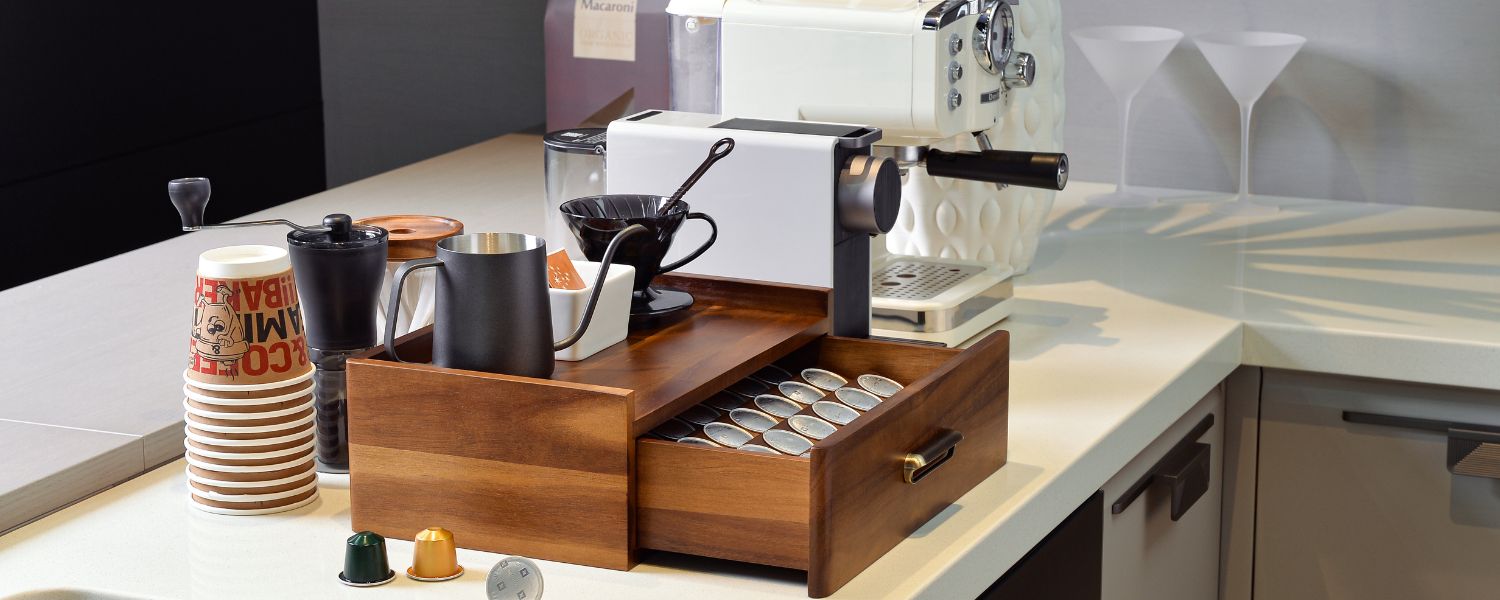
The shelf life of coffee pods refers to the duration during which the pods can maintain their quality, flavor, and aroma. Understanding the shelf life is crucial for consumers to ensure that they are enjoying a fresh and satisfying cup of coffee. Several factors can influence the shelf life of coffee pods, including packaging, storage conditions, and the type of coffee used.
In general, most coffee pods have a shelf life of 6 to 12 months from the date of manufacture. However, it's essential to check the expiration date printed on the packaging, as this can vary depending on the brand and type of pod. Using pods past their expiration date can result in a less flavorful cup of coffee, as the coffee grounds may have deteriorated over time.
Proper storage is essential for extending the shelf life of coffee pods. Pods should be stored in a cool, dry place away from direct sunlight and heat sources. Keeping pods in an airtight container can further protect them from exposure to air, moisture, and light, helping to preserve their freshness for longer.
Additionally, the type of coffee used in the pods can impact their shelf life. Arabica coffee beans, known for their smooth flavor and aroma, tend to produce pods that stay fresher longer than those made with Robusta beans. The roast level of the coffee can also affect its shelf life, with lighter roasts generally retaining their freshness better over time compared to darker roasts.
In conclusion, understanding the shelf life of coffee pods is essential for ensuring you get the best possible cup of coffee every time. By following proper storage guidelines and paying attention to expiration dates, you can enjoy a fresh and flavorful coffee experience with each brew.
General Guidelines
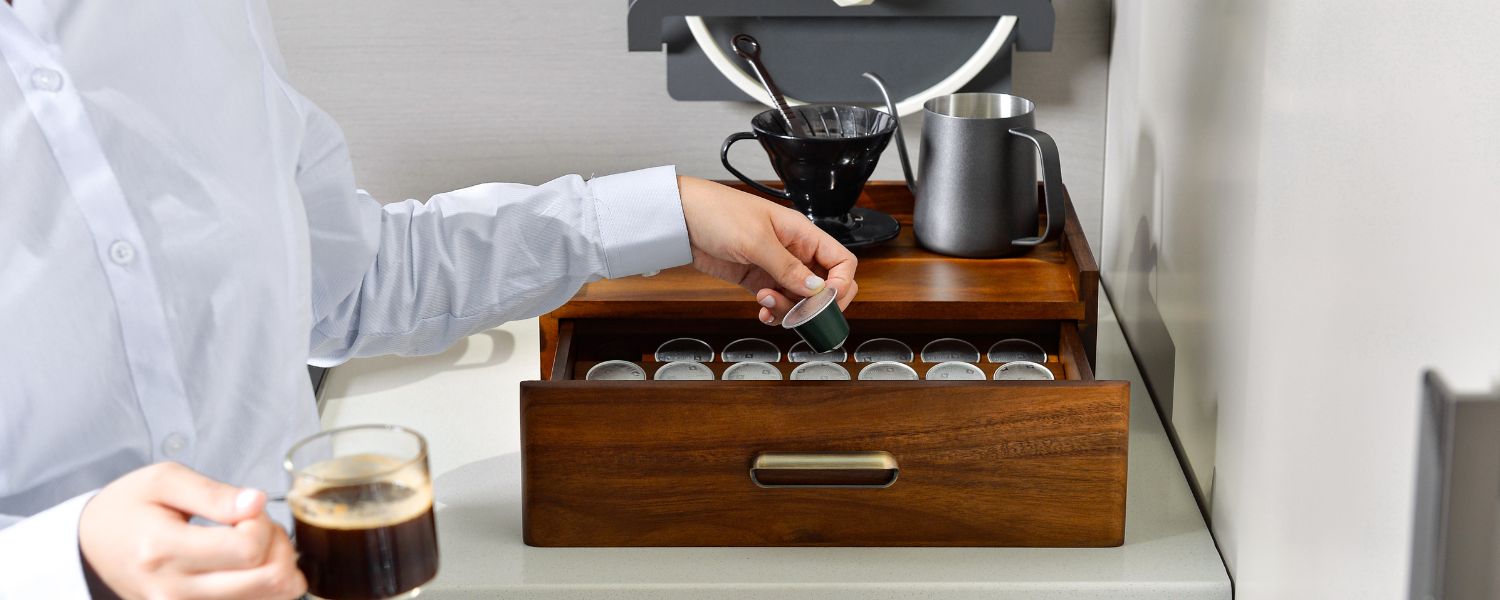
1. Check Expiration Dates
It's essential to check the expiration date on the packaging of coffee pods before use to ensure that you're brewing a fresh cup of coffee. Using pods past their expiration date can lead to a loss of flavor and aroma, as the coffee grounds may have degraded over time. By regularly checking expiration dates, you can ensure that you're enjoying the highest-quality coffee experience.
2. Store Properly
Proper storage is key to maintaining the freshness of coffee pods. Storing pods in a cool, dry place away from direct sunlight and heat sources helps to preserve their flavor and aroma. Additionally, keeping pods in an airtight container can further protect them from air, moisture, and light exposure, extending their shelf life and ensuring that each cup is as fresh as possible.
3. Consume Within Timeframe
Coffee pods can technically last for several months, but it's best to consume them within 1 to 2 months of purchase for optimal flavor. The coffee may lose some of its freshness and taste as time passes, so consuming pods within a reasonable timeframe ensures you get the best possible cup of coffee.
4. Use Airtight Containers
Storing coffee pods in airtight containers can help extend their shelf life by preventing exposure to air and moisture. Clean, airtight containers provide an additional layer of protection against environmental factors that can degrade the quality of the coffee. You can enjoy fresher coffee for longer by storing pods in airtight containers.
5. Keep Pods Sealed
Once a package of coffee pods is opened, it's essential to reseal it tightly to prevent the coffee grounds from being exposed to air. Exposure to air can lead to oxidation, which can cause the coffee to lose its flavor and aroma over time. By keeping pods sealed when not in use, you can maintain their freshness and enjoy a better-tasting cup of coffee.
6. Avoid Extreme Temperatures
Extreme temperatures can accelerate the degradation of coffee pods, leading to a loss of flavor and aroma. It's important to store pods in a stable environment with moderate temperatures and low humidity levels to preserve their freshness. Avoid storing pods in areas exposed to direct sunlight or heat sources, as this can cause the coffee to deteriorate more rapidly. By keeping pods in a suitable environment, you can ensure that they maintain their quality and flavor for as long as possible.
7. Rotate Stock
Rotating your coffee pod stock ensures that you always use the freshest pods available. By using older pods before newer ones, you can prevent pods from sitting unused for extended periods, which can lead to a loss of freshness. Regularly rotating your stock helps to ensure that you're consistently enjoying the best possible cup of coffee with each brew.
Best Practices for Consumption
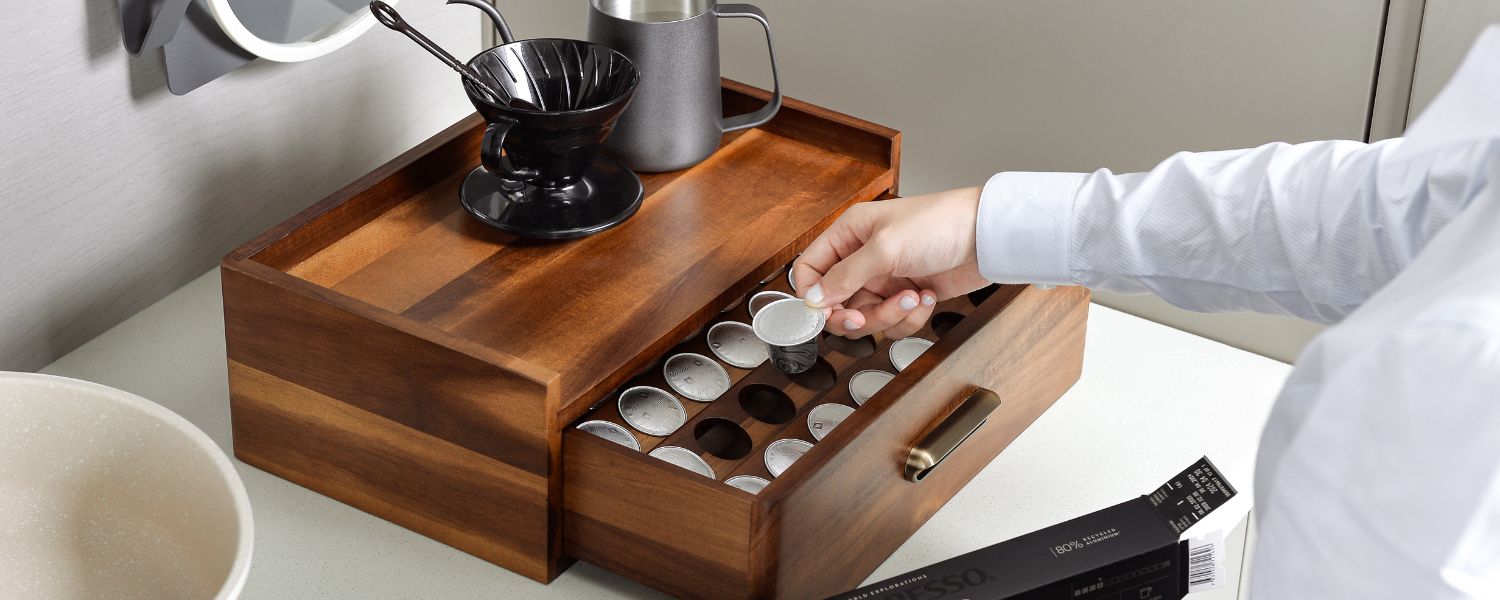
Best practices for consuming coffee pods are essential for ensuring that consumers enjoy the freshest and most flavorful cup of coffee possible. These practices encompass various aspects, including preparation, brewing, and serving. Here are some best practices for the consumption of coffee pods:
1. Preheat Your Coffee Machine
Before brewing your coffee pod, preheating your coffee machine is a good idea. Preheating helps ensure that the water temperature is optimal for brewing, resulting in a more flavorful and aromatic cup of coffee.
2. Use Filtered Water
Use filtered water when brewing your coffee pods. Using filtered water helps to remove impurities and minerals that can affect the taste of your coffee. It also helps to ensure that your coffee has a clean and pure flavor.
3. Select the Right Brew Size
Most coffee pod machines can select different brew sizes. Choose the brew size that best suits your preferences and the coffee pod you use. Adjusting the brew size can help ensure you get the perfect strength and flavor in your cup of coffee.
4. Brew Immediately
Once you've inserted your coffee pod into the machine, brew your coffee immediately. Brewing your coffee promptly helps to ensure that you capture the freshness and flavor of the coffee grounds before they have a chance to degrade. If you're looking for a stylish storage solution for your coffee pods, consider a coffee pod holder wood that not only keeps your pods organized but also adds a touch of elegance to your kitchen counter.
5. Serve Immediately
After brewing your coffee, serve it immediately. Freshly brewed coffee is at its peak flavor and aroma, so it's best enjoyed immediately. Avoid letting your coffee sit for too long, as it can begin to lose its freshness and flavor over time.
6. Clean Your Machine Regularly
Regular cleaning of your coffee machine is essential for maintaining the quality of your coffee. Follow the manufacturer's instructions for cleaning and descaling your machine to ensure it continues brewing delicious coffee.
7. Experiment with Flavors
Don't be afraid to experiment with different flavors and types of coffee pods. Try new blends, roasts, and flavor profiles to discover your favorites. Exploring other options can help you find the perfect cup of coffee to suit your taste preferences.
The Importance of Storing Your Coffee Pods
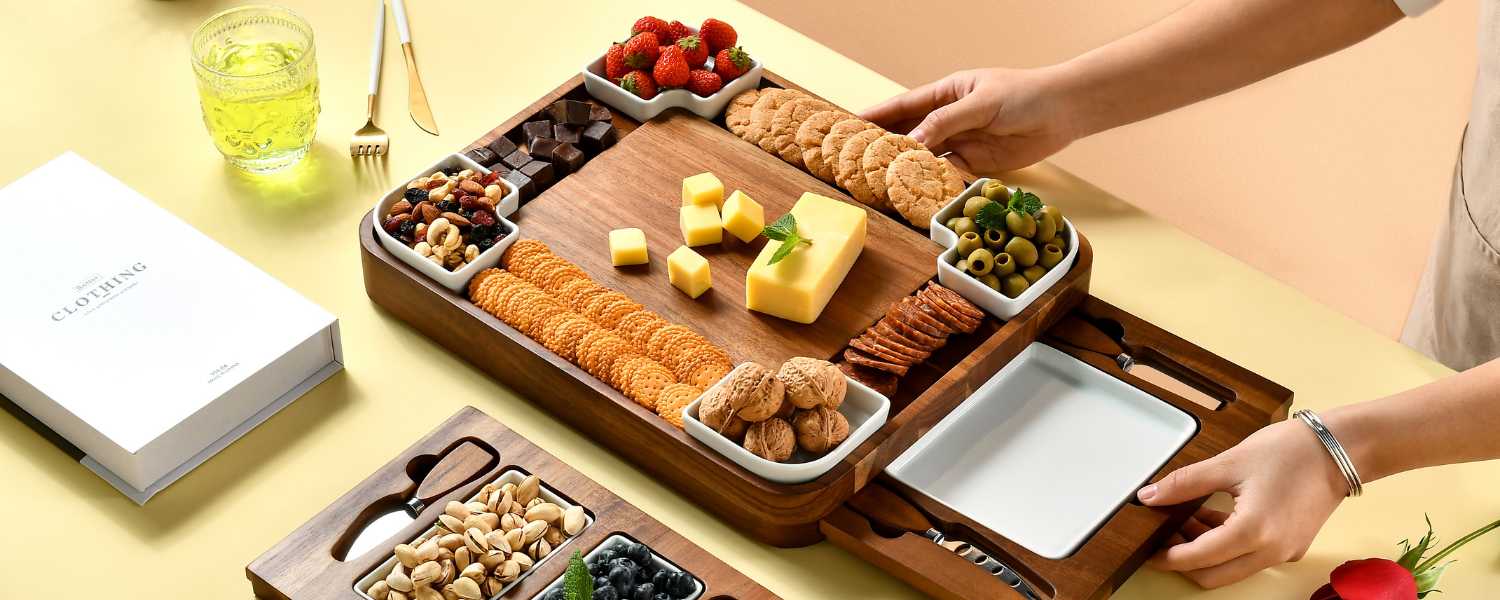
Properly storing coffee pods cannot be overstated, as it directly impacts the brewed coffee's freshness, flavor, and quality. Proper storage helps to preserve the delicate flavors and aromas of the coffee grounds inside the pods, ensuring that each cup of coffee is as delicious as possible. Here are several reasons why storing your coffee pods correctly is crucial:
1. Preserve Freshness
Proper storage helps to protect the coffee pods from exposure to air, light, and moisture, which can all degrade the quality of the coffee over time. By storing pods in airtight containers or sealed packaging, you can extend their shelf life and preserve their freshness.
2. Maintains Flavor and Aroma
Exposure to external factors such as air, light, and moisture can cause the coffee grounds inside the pods to lose their flavor and aroma. Storing pods in a cool, dry place away from direct sunlight and heat sources helps maintain the coffee's integrity, ensuring that each cup is rich, flavorful, and aromatic.
3. Prevents Oxidation
Oxidation is a natural process that occurs when coffee is exposed to air. It can lead to a loss of flavor and aroma and the development of stale or off-flavors. Storing coffee pods in airtight containers helps to minimize oxidation and preserve the freshness of the coffee for extended periods.
4. Reduces Waste
Properly storing coffee pods helps reduce waste by preventing them from spoiling or becoming stale before they can be used. By extending the shelf life of the pods through proper storage, you can ensure that you get the most value out of each purchase and minimize the need for disposal.
5. Ensures Consistent Quality
Consistency is key when enjoying a great cup of coffee. Properly stored coffee pods maintain their quality and freshness, ensuring that each cup you brew is consistently delicious. Whether you want your morning coffee or brew a cup for guests, you can trust that your properly stored coffee pods will always deliver a satisfying coffee experience.
Storage Tips
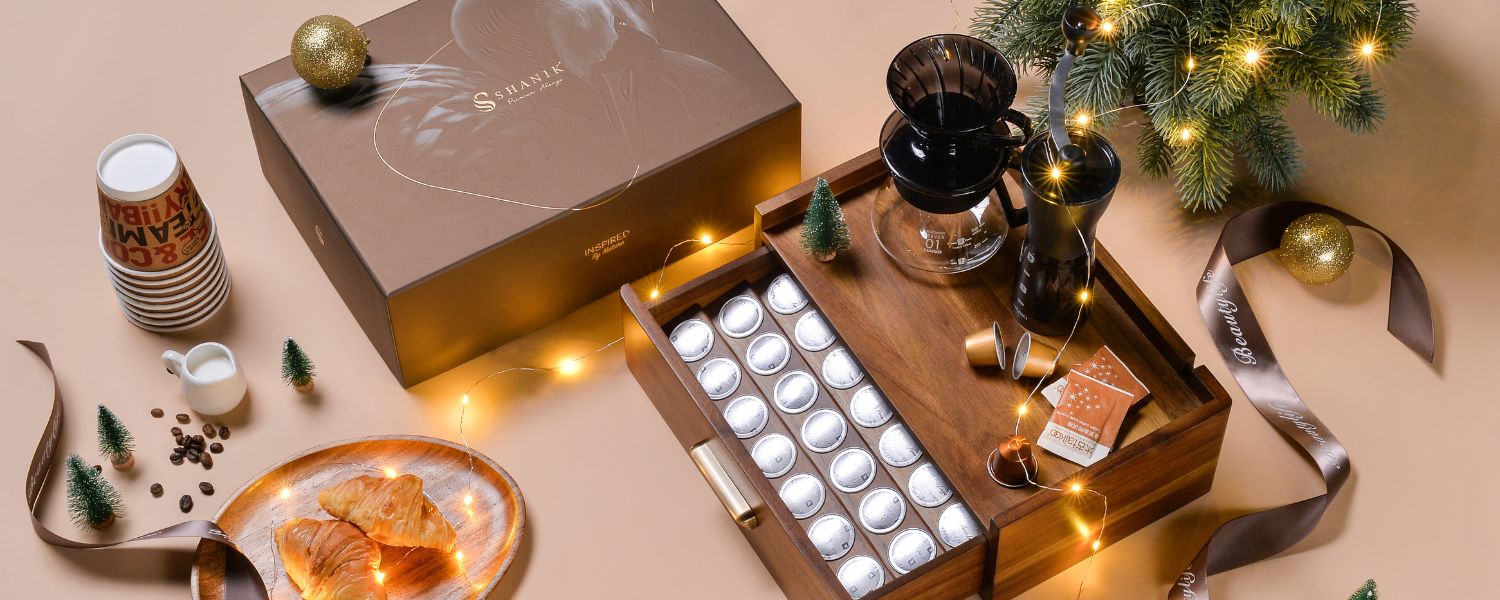
Proper storage is crucial for maintaining the freshness and quality of your coffee pods. Here are some essential storage tips to ensure that your coffee pods stay fresh and flavorful for as long as possible:
1. Keep Pods in a Cool, Dry Place
Store your coffee pods in a cool, dry place away from direct sunlight, heat sources, and moisture. Exposure to heat, light, and humidity can accelerate the degradation of the coffee, leading to a loss of flavor and aroma.
2. Use Airtight Containers
Consider storing your coffee pods in airtight containers to provide additional protection against air and moisture. Airtight containers help seal the freshness of the coffee grounds, preserving their flavor and aroma for extended periods.
3. Avoid Refrigeration or Freezing
While it may be tempting to store your coffee pods in the refrigerator or freezer to extend their shelf life, this can do more harm than good. The moisture and fluctuations in temperature can cause the coffee to deteriorate more rapidly, leading to a loss of flavor and aroma. It's best to store coffee pods at room temperature in a stable environment.
4. Reseal Opened Packages
Once you've opened a package of coffee pods, seal them tightly to prevent air from entering and compromising the freshness of the coffee. Use clips or seals to close the package securely and keep the coffee pods fresh longer.
5. Rotate Stock Regularly
If you purchase coffee pods in bulk, rotate your stock regularly to ensure that you use older pods before newer ones. This helps to prevent pods from sitting unused for extended periods, ensuring that you always enjoy the freshest coffee possible.
6. Check Expiration Dates
Always check the expiration date printed on the packaging of your coffee pods before use. Using pods past their expiration date can result in a less flavorful cup of coffee, as the coffee grounds may have degraded over time.
Sustainability and Environmental Impact
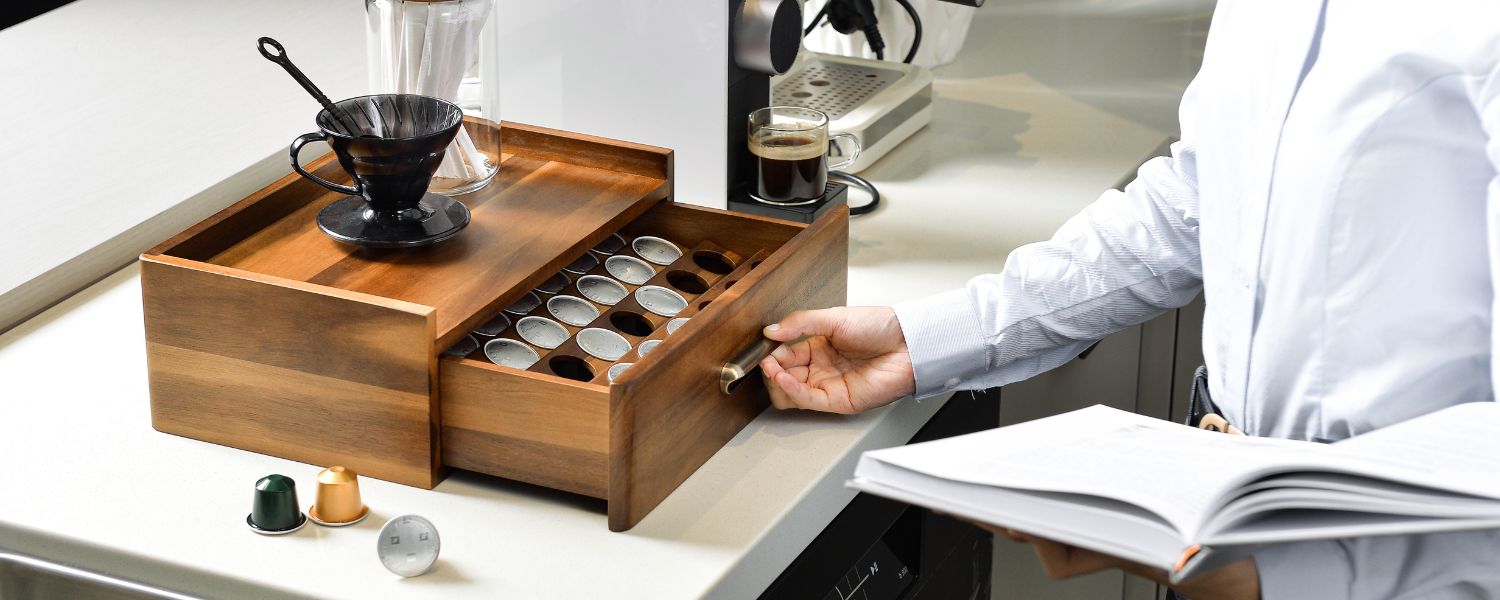
Sustainability and environmental impact are important considerations when it comes to coffee pods, as the growing popularity of single-use pods has raised concerns about their contribution to waste and environmental degradation. Here are some key points to consider regarding sustainability and the environmental impact of coffee pods:
1. Material Composition
Many coffee pods are made from materials such as plastic or aluminum, which are not biodegradable and can take hundreds of years to break down in landfills. This can contribute to environmental pollution and harm ecosystems.
2. Waste Generation
The widespread use of single-use coffee pods has led to a significant increase in waste generation. Millions of pods are discarded annually, adding to the growing waste disposal problem and landfill overflow.
3. Recyclability
4. Energy Consumption
The production and disposal of coffee pods require significant energy inputs, including the extraction of raw materials, manufacturing processes, transportation, and waste management. This energy consumption contributes to greenhouse gas emissions and climate change.
5. Alternative Brewing Methods
Switching to alternative brewing methods, such as traditional drip coffee makers, French presses, or pour-over devices, can help to reduce reliance on single-use pods and minimize environmental impact. These methods often produce less waste and use fewer resources than pod-based systems.
6. Consumer Awareness
Increasing consumer awareness about the environmental impact of coffee pods can encourage individuals to make more sustainable choices. Choosing compostable or recyclable pods, reducing overall consumption, and properly disposing of used pods can all help to mitigate environmental harm.
7. Corporate Responsibility
Coffee pod manufacturers have a role in addressing sustainability concerns by implementing eco-friendly practices throughout their supply chains. This includes using sustainable materials, reducing packaging waste, and investing in recycling and waste management initiatives.
Conclusion
In conclusion, the shelf life of coffee pods can vary depending on several factors, including packaging, storage conditions, and the type of coffee used. To ensure that you are getting the freshest cup of coffee possible, it is essential to store your pods properly and consume them within a reasonable timeframe. Following these guidelines, you can enjoy a delicious cup of coffee every time.
Shanik Home offers a range of storage solutions designed to help unlock the mystery of coffee pod shelf life. Their airtight containers provide optimal protection against air, moisture, and light, ensuring that coffee pods stay fresh and flavorful for longer periods of time.
By storing coffee pods in Shanik Home containers, users can extend the shelf life of their pods and enjoy a consistently delicious cup of coffee every time they brew. With Shanik Home's innovative storage solutions, the mystery of how long coffee pods last is solved, allowing coffee lovers to savor their favorite blends with confidence.

